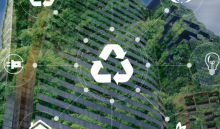
The Sustainability Hub at EADA promotes research projects in sustainability, led by an academic team with expertise in the field. Our research is carried out in Strategy, Leadership, Marketing and Supply Chain.
The team subsequently designs dissemination materials such as academic articles, and transfers their main conclusions and learning to EADA programmes, through didactic material, case studies, etc.










